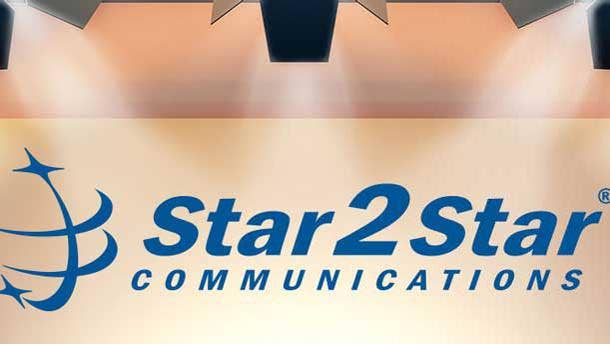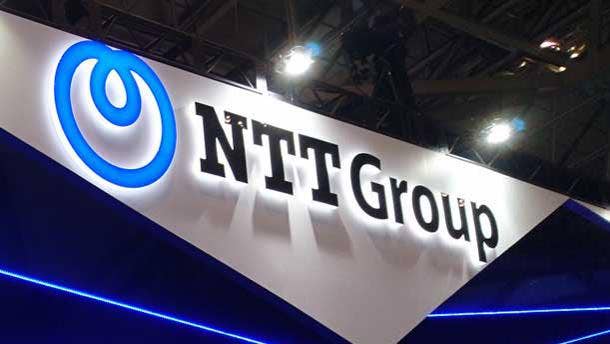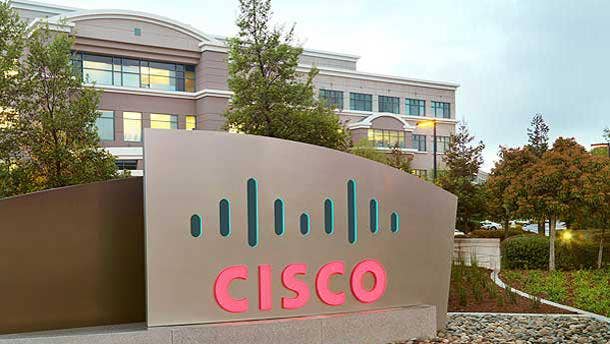Here's Who Made Gartner's Magic Quadrant For Unified Communications As A Service
Vendors are pouring money and resources into the UCaaS space and the field of competitors is taking shape in earnest, according to the latest Gartner Magic Quadrant for global UCaaS.

Communication Breakdown
The unified communications market is, like others, in the midst of a fundamental shift away from on-premises technology to the cloud. As more and more businesses demand cloud-based technology delivered as a service on a subscription basis, vendors are pouring money into R&D for UCaaS offerings, and the field of competitors is taking shape in earnest, according to the latest Gartner Magic Quadrant for global UCaaS.
Within three years, 90 percent of IT leaders will no longer purchase premises-based UC infrastructure, up from about half today, Gartner estimates. By then, Gartner says, cloud-based UC offerings will be far ahead of today's in almost all areas, including features, functionality, analytics and dashboards.
Today, the clear leader in the UCaaS space is RingCentral, according to Gartner's latest Magic Quadrant. RingCentral is joined in the Leaders quadrant by 8X8, Verizon and others. The Challengers quadrant is the most crowded and includes major IT and cloud vendors like Cisco Systems, Microsoft and Google.
Click through to learn how the industry's leading vendors stack up in the fast-growing UCaaS space.

Niche Player: Masergy Communications
Plano, Texas-based Masergy Communications has roots in the networking market, and its UCaaS offering is powered by Cisco technology. The offering includes voice, audio, video and web conferencing, as well as support, analytics and APIs. Masergy also includes performance monitoring for both web and mobile clients. Gartner puts Masergy in the Niche Players quadrant, saying it expects strong growth from the company thanks to its strong value and customer support. The company will have to overcome its small size, difficulty differentiating itself from other vendors that use Cisco's BroadSoft platform, and the possibility of competing with channel partners that have UCaaS offerings of their own, according to Gartner.

Niche Player: Star2Star
Star2Star is based in Sarasota, Fla., and merged with Ireland-based BlueFace early this year, giving the company a presence in Europe and the Asia-Pacific market. Gartner puts Star2Star in the Niche Players quadrant. The company's UCaaS architecture is based on open-source technology and is used by customers from SMBs to large enterprises. Star2Star's strength is in its value proposition, and it offers solid pricing for customers that need to support distributed sites over broadband internet, Gartner said. Customer satisfaction with Star2Star is also high. Star2Star is challenged by its lack of name recognition and its relatively small size, Gartner said, which could constrain its ability to expand further. The user experience for its desktop conferencing solution is also behind others in the market, Gartner said.

Visionary: Fuze
Fuze has the most complete vision of the three UCaaS vendors in the Visionaries quadrant. The Boston-based company is a UCaaS specialist and its offerings run on its own platform. Fuze sells its offerings direct for the most part, and about half of its accounts are enterprise customers, Gartner said. Gartner notes Fuze's strong pace of innovation, as well as its lofty revenue growth over the past year. Still, Fuze suffers the pitfalls of a fast pace, namely, problems with customer service and support, lack of brand awareness and low staffing levels, Gartner said. The company's complex platform can also lead to longer-than-expected deployments, Gartner said.

Visionary: Mitel
Mitel's roots are in the on-premises business telephone market, but last year it acquired ShoreTel for its UCaaS platform. The Ottowa, Canada, vendor lands in the Visionaries quadrant. It now markets two UCaaS offerings, MiCloud Flex and MiCloud Connects, as well as two white-label offerings for service providers in the U.S. and Europe. Mitel's offerings work well with customers that require some level of customization, its video offerings are beginning to gain traction, and it has a massive customer base of some 60 million endpoints to sell to, Gartner said. Mitel is challenged by the need to transition to a cloud-first strategy, lack of traction in large enterprise accounts, and end-user interfaces that are less intuitive than competitors, according to Gartner.

Visionary: West
Omaha, Neb.-based West Corp.'s top UCaaS offering is based on a Cisco platform, and it is complemented with a host of web and audioconferencing services, emergency communications services, and network services, among others. The company is in the Visionaries quadrant. West was acquired by private equity firm Apollo Global Management late last year and is well established among larger customers. Gartner said that West's reliability, as well as its close Cisco ties and private equity ownership, keep it relevant in the market. By the same token, differentiating from Cisco will be difficult for West as it branches into areas outside VoIP and contact centers, the research firm said.

Challenger: NTT Group
Gartner puts Japan-based NTT Group among the UCaaS market's Challengers. NTT's UCaaS portfolio is a combination of offerings from NTT, Arkadin and Dimension Data. All three offerings run on Cisco platforms. Gartner praises NTT for its "methodical gains" in the UCaaS market, as well as its broad global coverage and strength in related areas like consulting, security and managed services. The breadth of NTT's offerings are also its biggest challenge, Gartner said, noting that customers have to choose between offerings from three different business units, none of which has significant brand recognition in the space. Users are not consistently informed about the group's latest offerings, Gartner said.

Challenger: AT&T
Global communications giant AT&T has three UCaaS offerings, including one that is part of the Cisco Webex portfolio, and another that is based on network functions virtualization and software-defined networking technology and runs as an "over-the-top" service, Gartner said. The Dallas-based company's customers range from SMBs to the largest enterprises in the world. The company is a Magic Quadrant Challenger and sells to SMBs through the channel and direct to larger customers. Customers are attracted to the company's financial stability, global coverage and security capabilities, Gartner said. Gartner said AT&T's challenges in the UCaaS market include a slow pace of updates, perceived complexity, and difficulty differentiating from offerings provided by vendors it partners with, namely Cisco and Microsoft.

Challenger: Cisco
Gartner's analysis focused on Cisco's BroadSoft business, and placed the San Jose, Calif.-based networking behemoth in the Challengers quadrant. Cisco's UCaaS stack is made up of the BroadSoft technology along with Cisco's Customer Journey Platform and Webex offerings. Together, the UCaaS offering evaluated by Gartner is known as BroadCloud, and it has a global reach and the capabilities needed to meet a wide range of requirements, Gartner said. Gartner said Cisco's UCaaS efforts are helped by its broad portfolio and its deep well of channel partners, allowing it to ramp more quickly and scale for larger customers. However, Gartner noted that customers are still learning what Cisco's acquisition of BroadSoft means to them and said Cisco's BroadCloud APIs are "still maturing."

Challenger: Google
Google's UCaaS offering is known as Hangouts and is part of the G Suite bundle. Gartner places the company in the Challengers quadrant. Hangouts is split into two—Hangouts Meet, which is for audio and videoconferencing, as well as screen sharing; and Hangouts Chat, which is for collaboration. Mountain View, Calif.-based Google uses partnerships with RingCentral and DialPad via the G Suite Marketplace for phone capabilities. Gartner said Google's strong investment, pace of updates and real-time services are particularly advantageous, while weaknesses include limited availability of some functions, and lack of quality monitoring and performance tools.

Challenger: Microsoft
Microsoft's UCaaS offering is known as Microsoft Teams and is part of its Office 365 software suite. Microsoft lands in the Challengers quadrant. The Redmond, Wash.-based company expects Teams to replace the existing Microsoft Skype solution over time, Gartner said. The Teams offering is built on microservices running on the Microsoft Azure cloud and supports collaboration, presence, voice, audio, video and screen sharing. Strong momentum, a large network of service partners and the ability to incrementally add features are among Teams' strong suits, according to Gartner. Its weaknesses include lagging telephony capabilities, an unclear road map and higher-than-expected costs, Gartner said.

Leader: BT Group
London-based BT lands in the Leaders quadrant. The company provides a slew of UCaaS offerings, two of which are available globally. Those two are powered by Cisco and Microsoft and are the focus of Gartner's analysis. Gartner noted that the majority of BT's UCaaS customers are large, multinational corporations. Over the past year, BT has invested in self-administration portals, dashboards and reporting tools. The company's simple procurement process, service management and consulting capabilities along with its strength in supporting Cisco and Microsoft environments make it a natural for its large corporate customers, Gartner said. However, the company is challenged by a slow pace of innovation and lack of North American brand awareness, Gartner said.

Leader: Orange
Like BT, Orange, a global service provider, provides a couple of UCaaS offerings based on Cisco and Microsoft technology. The Paris-based company is in the Leaders quadrant, and it uses a standardized reference architecture to deliver its UCaaS offerings, cutting down on problems and making the offerings more predictable, Gartner said. Orange's offerings are well suited to large accounts, priced competitively and are often purchased bundled with other technology like SD-WAN and security. Like BT, Orange suffers from a lack of name recognition in North America. It may also be difficult for Orange to differentiate from the likes of Cisco and Microsoft, Gartner said.

Leader: Verizon
New York based global service provider Verizon lands in the Leaders quadrant. Its UCaaS offerings are based on Cisco platforms, and the company has go-to-market partnerships with Cisco to sell Webex offerings. Verizon's five-year history of supporting Cisco-based UCaaS offerings, its success in the small- and midsize-business market and its success in getting customers to use its full suite of UCaaS products give it clear advantages in the market. That said, its dependence on Cisco, lack of marketing for product road maps and unintuitive portals are among Verizon's weaknesses, Gartner said.

Leader: 8X8
UCaaS application specialist 8X8 is in the Leaders quadrant and approaches the market with a cloud communications portfolio that includes analytics and services that can be personalized using its machine- learning capabilities. The company has grown from its early days in the SMB market to a position in which about a third of its customers have 1,000 employees or more. That track record of serving larger customers, solid platform integration, regular enhancements and competitive pricing are particular strengths for 8X8, Gartner said. The San Jose, Calif., company is challenged by a lack of brand awareness in the enterprise, and lackluster customer support, Gartner said.

Leader: RingCentral
UCaaS application company RingCentral claims the spot farthest up and to the right in the Leaders UCaaS Magic Quadrant. The Belmont, Calif., company developed its own platform, which includes an entire UCaaS stack. Calling RingCentral's offering "strong across the board," Gartner says RingCentral is a good fit for SMBs, and is positioned well for companies looking for full-stack capabilities. The RingCentral offering has a strong API ecosystem, and the company's customer service is well regarded, Gartner said. Challenges include capabilities that change too quickly and with insufficient notice, high pricing for phone-centric solutions and lack of presence in certain markets, Gartner said.